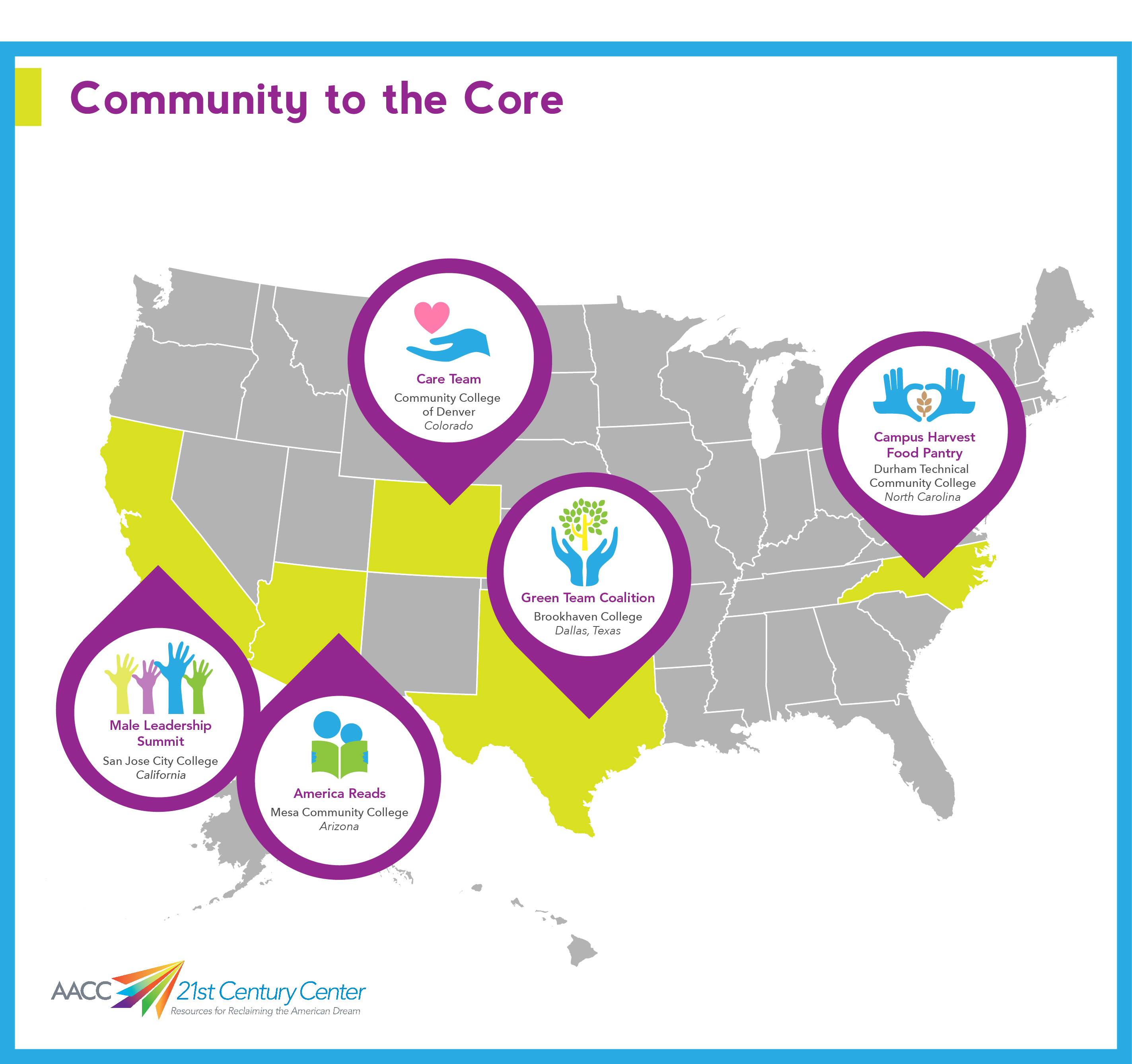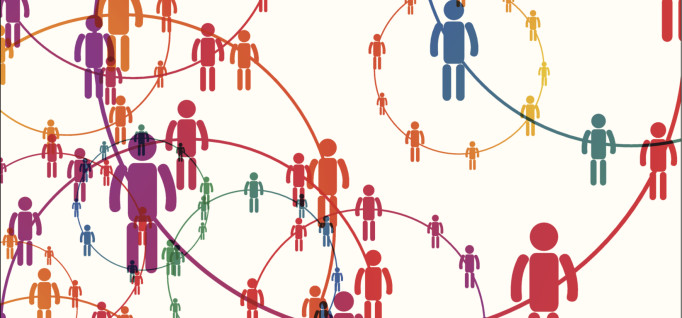Data Matters: Colleges Put Community First
By Sarah Asp Olson
March 8, 2016
Most community colleges say up front, right in their mission statements, that they are committed to serving the communities in which they operate. From a student food bank to a community reading program, these five colleges live out that mission.
San Jose City College, San Jose, California
Program: African American/Latino/Pacific Islander/Native American Male Summit
Program started: 2010
SJCC’s annual Male Summit is a one-day event for ninth- through 12th-grade students from seven area school districts. Male counselors, staff and faculty present workshops and panel discussions, encouraging students to think about college and career; as well as health, nutrition, relationships and the future.
Fast Fact: Participants in their senior year who commit to attending SJCC can get their college career started by moving directly into Super Saturday where they meet with counselors and develop a semester education plan. From there, they attend a Summer Bridge and move into SJCC’s First Year Experience.
Mesa Community College, Mesa, Arizona
Program: America Reads
Program started: More than 15 years ago
A collaboration between the Center for Community & Civic Engagement and the Education Studies department, MCC’s America Reads program serves local elementary schools. Student tutors are trained in reading techniques and classroom strategies, with the ultimate goal of increasing literacy. Tutors also plan and host two annual events: a book fair fundraiser in the fall, and a birthday party for Dr. Seuss in the spring.
Fast fact: America Reads tutors are paid for their services through the Federal Work-Study program. They also a class to become nationally certified tutors.
Community College of Denver, Denver, Colorado
Program: Care Team
Program started: Fall 2013
CCD’s dean of student life launched the Care Team after recognizing a need for greater community services on campus, especially those related to mental-health issues. The team has two primary initiatives: to conduct threat assessment and crisis response for the campus — including active-shooter training and community forums on safety — and to be a catch-all for students who need support with anything from housing assistance to switching majors to reporting an assault.
Fast fact: About 40 percent of the center’s cases have to do with mental-health issues, prompting the Care Team to explore greater services in that area, including an on-campus clinician.
Brookhaven College, Dallas, Texas
Program: Green Team Coalition
Program started: 2007
A group of Brookhaven College employees came together in 2007 to form a Green Team to promote paper recycling on campus. In 2013, students joined the group and the Green Team Coalition was formed to promote a wide array of sustainability initiatives, ranging from reducing plastic water bottle use on campus to hosting an annual Earth Day Fest.
Fast fact: Brookhaven recycled approximately 48,000 pounds and placed eighth among participating community colleges during last year’s Recycle Mania.
Durham Technical Community College, Durham, North Carolina
Program: Campus Harvest Food Pantry
Program started: 2012
Durham Tech’s Campus Harvest Food Pantry serves students and their families in need of food support. In addition to accepting donations, the pantry partners with local community organizations — including a community garden — to receive bread and produce. Volunteers staff the pantry, which is open six hours per week. Last September, the pantry moved into a larger warehouse to accommodate a pantry makeover from Food Lion grocery stores. Food Lion installed shelving and a new refrigerator. The chain also stocked the pantry with 5,200 pounds of food — the equivalent of more than 35,000 meals.
Fast fact: In the 2014-2015 academic year, the pantry served more than 423 students in 3,813 visits, and distributed 16,727 pounds of food. That represents a 315 percent increase in the amount of food distributed compared to the 2012-2013 school year.







